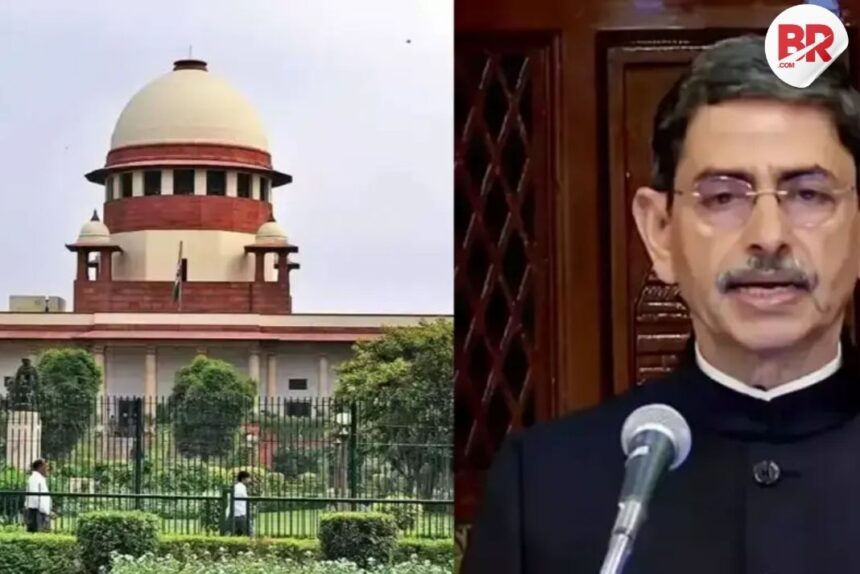The Supreme Court has strongly criticized Tamil Nadu Governor RN Ravi for not approving 10 Bills passed by the state Assembly. The court said his action was illegal and wrong in law.
What Did the Court Say?
The court explained that the Governor has no special powers or discretion in such matters. He must act based on the advice of the state’s council of ministers. The court made it clear that once a bill is passed again by the Assembly and sent back to the Governor, he must give his approval.
The judges—Justices JB Pardiwala and R Mahadevan—said these 10 bills will be considered approved from the date they were re-submitted to the Governor.
Read More: Supreme Court gives boost to Trump administration’s deportation plans under Alien Enemies Act
Key Points from the Judgment:
-
The Governor must approve a bill if it is sent to him again after being reconsidered by the Assembly.
-
The Governor cannot delay or refuse approval without a valid reason.
-
The only exception is if the bill is changed significantly during reconsideration.
-
The Governor must act within specific time limits:
-
If he decides to send a bill to the President, it must be done within one month if it’s based on the advice of ministers.
-
If the Governor goes against the ministers’ advice, he must decide within three months.
-
After the Assembly re-presents a bill, the Governor must give assent within one month.
-
The Court’s Message to Governors:
The Supreme Court said that Governors should respect democracy and the elected government. A Governor should act as a friend, philosopher, and guide, not as someone who blocks government work for political reasons. The court added that the Governor’s role is to help things run smoothly, not to create obstacles.
Read More: No CBI Inquiry Into Teacher Posts”: Supreme Court Gives Relief to Bengal Government
What Did the Tamil Nadu Government Say?
Chief Minister MK Stalin accused the Governor of trying to stop the state government’s plans by delaying the bills. He also said that the central government was targeting non-BJP ruled states using Governors.
In Short:
The Supreme Court said the Tamil Nadu Governor cannot delay or refuse to approve bills passed by the Assembly. He must follow the Constitution and act based on the advice of the state government. The court also gave clear time limits for Governors to act on bills and reminded them of their duty to support democracy, not block it.




